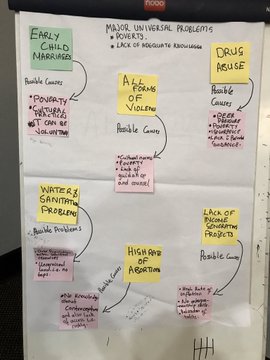By Joyce Mukucha
In the quest to ensure that social norms, attitudes and behaviours at societal, community, family and individual levels are transformed to eliminate violence against women and girls in Hopley, the Zimbabwe Community Health Intervention Research (ZiCHIRe-BC) is facilitating a Communication for Development (C4D) model which seeks to underpin transparency and accountability, collective action, and the shaping of attitudes and norms to promote positive socialisation for women in the community.
Through the Spotlight Initiative, the organisation is engaging both the poor and marginalised people as well as those who are better off to ensure that there is development of holistic economic models that are inclusive.
The participation processes determines significantly whose voices are heard and amplified and whose are muted in promoting the Sexual and Reproductive and Health and Rights (SRHR) of women and adolescent girls.
The dialogue’s main thrust also aims at supporting development enhancing health, governance, livelihoods, disaster risk reduction and humanitarian response, among other challenges in the community of Hopley as it draws on a range of communication platforms and a strong understanding of the sociocultural context.
ZiCHIRe Programmes Officer, Obey Mukorera said C4D was of paramount importance in limiting the spread of inaccurate information and negative messages, as well as how to promote positive messages for the betterment of the girl child and women who are at high risk of Sexual Gender Based Violence (SGBV) among other problems in the society.
“Communication for development process is essential for effective participation and central to enhancing human development. It is important to develop SGBV responsive editorial guidelines in partnership with the media for responsible, ethical and consistent reporting on SGBV, SRHR and gender equality for women and girls and children’s rights particularly in Hopley. Broader and more equal participation reflecting society as a whole is considered a prerequisite for more responsive and democratic governance and sustainable development,” Mukorera said.
“Communication for development as a practice seeks to provide a framework through which the most appropriate actions can be taken to empower communities and to make policy makers more accountable. Therefore, it is crucial to develop multimedia and interpersonal social and behaviour change strategy including district and community mobilisation interventions focusing on early marriages and SGBV against children and improving wellbeing of girls,” he said.
Mukorera added that communication advocacy platforms are strengthened to develop strategies and programmes including communication dialogues, public information and advocacy campaigns to promote gender-equitable norms, attitudes and behaviours in relation to women and girls. He pointed out that it is important to engage everyone for participation as well as having proper packaging of information which is acceptable and embraceable by the people of Hopley.
He also stressed that through communication strategies, self-esteem and self-confidence for girls and women especially the key population groups such as women with disabilities and women living with HIV is boosted at the same time transforming harmful masculinities. Promoting a culture of inclusivity of women and girls facing intersecting forms of discrimination into existing community-based-models, he said, plays a pivotal role in addressing rampant issues.
Communication for Development is anchored in a Human Rights Based Approach (HRBA) to Development which incorporates the core values of equity and empowerment and underpins the work of the UN Country Teams. C4D prioritizes the information and communication needs and interest of poor and vulnerable people and focuses on the role of the media, especially community media, in providing ‘platforms’ for disadvantaged men and women to ‘understand and realize their ‘rights.’
In order to participate in dialogue processes people need to be aware of issues and rights, have information about those issues and they need to have the capacity to express views and act on them.
